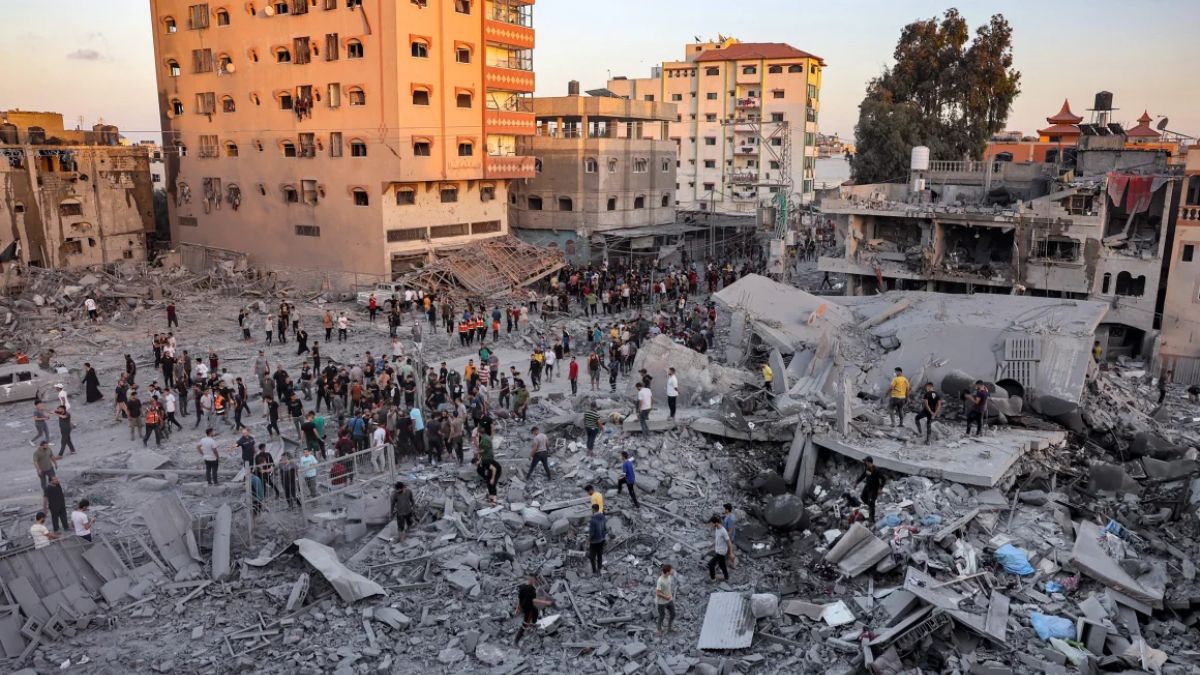The United States along with mediators Qatar and Egypt have called Israel and Hamas for talks on Thursday to finalise the Gaza ceasefire deal read more
)
Fatima Payman supported a motion from the opposition Greens to announce “the need for the Senate to recognise the State of Palestine.” AFP
Even as Israel and Hamas appear to be increasing the roadblocks, the United States has said it’s hopeful of a deal for a ceasefire in the Gaza Strip.
Later this week, the United States along with mediators Qatar and Egypt have called Israel and Hamas for talks on Thursday (August 15) to finalise a deal for a ceasefire in Gaza and the release of all hostages in captivity.
The deal will be in line with the three-stage plan floated by Biden in May, which envisions an end to the war in Gaza in a three-stage process starting with a six-week ceasefire.
Israel and Hamas have, however, hardened their positions. While Israel has added new demands in recent weeks that have dampened the chances of a deal, Hamas has refused to take part in the Thursday’s meeting. Still, the Biden administration has sounded hopeful.
Despite the Hamas’ refusal to take part in the talks, the Department of State has said that there are assurances that Hamas will indeed join the talks.
‘We fully expect talks to move forward’
When Israel and Hamas come to the table on Thursday, there are full expectations that the talks will move forward, said the Department of State.
“So, we’ll let this process play out, but we fully expect these talks to move forward, as they should,” said State Department spokesman Vedant Patel on Tuesday, according to AFP.
Patel said that “our Qatari partners have assured us that they are working to ensure that there is Hamas representation as well”.
Even though new Israeli demands have dampened the prospects of a deal, Patel said that Israeli officials have said that “they’ll be prepared to finalize the details for implementing the deal”. He, however, refused to comment on specific Israeli positions on the negotiations.
The Israel-Hamas talks also take place at a time when Iran is widely expected to attack Israel anytime. Reuters has reported that the only thing that may make Iran rethink about the attack is a ceasefire in Gaza, but the new demands inserted by Israel has reduced the chances of a deal.
What are problematic Israeli demands?
While the core proposal on the table remains as was announced by Biden in May, Israel has added new demands in recent weeks.
Israel has added four new demands related to the return of displaced Palestinians from south to the north, the control of Gazan strip of territory bordering Egypt, and the details of hostages with Hamas.
Firstly, Israel has demanded checkpoints to screen displaced Gazans returning to their homes northward so that no terrorists make their way to the north, according to The New York Times.
Secondly, Israel has demanded continued control of the ‘Philadelphi Corridor’, the 8-9 mile-long (around 13-14 kms) strip of land along the Gaza-Egypt border. The idea is to check the cross-border flow of terrorists and weapons to prevent any terrorism resurgence in the region in the future.
Thirdly, Israel has demanded the option to resume fighting later if the need arises whereas Hamas wants a permanent end to the war, as per The Times.
Fourthly, Israel’s Channel 12 has reported that one of the revisions also requires Hamas to hand over the list of all surviving hostages to Israel.
While Prime Minister Benjamin Netanyahu is sticking to the demands with the idea that the military pressure on Hamas is likely to make it accept them, it has been reported that Hamas and Egypt have rejected them.
Previously, Reuters reported that while Hamas has rejected the demand to set-up screening checkpoints for returning Palestinians, Egypt has rejected the demand to retain control of the Philadelphi Corridor.

 1 month ago
6
1 month ago
6
)
)
)
)
)
)
)
)
)
)
)
)
)
)
)
)
)
)
)
)
)
)
)
)
)
 English (US) ·
English (US) ·